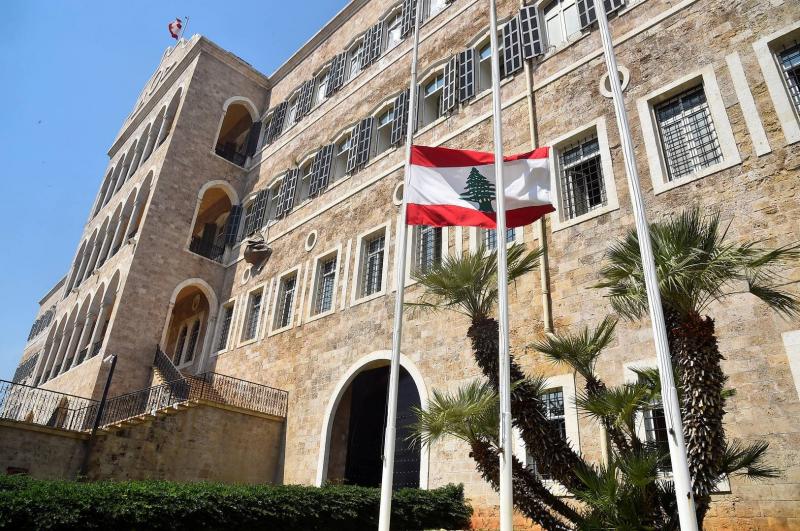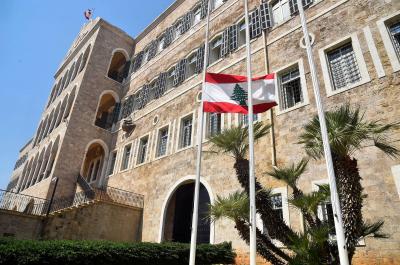Lebanon is awaiting a constitutional deadline soon, namely the municipal and optional elections. The entire Lebanese populace is anticipating their fate in May, especially after they were postponed last year under a law adopted by the Cabinet under the pretext of the overlap between municipal and optional elections and parliamentary elections in May 2022. Bassam al-Mawlawi, the Interior Minister in the caretaker government, confirmed that his ministry is fully prepared for this mandate. He had previously stated in a press conference that the municipal and optional elections will occur on time, and he sent a letter to the Cabinet’s General Secretariat outlining the estimated cost of conducting the elections to be around nine million dollars.
However, sources from the Interior Ministry, who requested to remain anonymous, confirmed to "Wardna" that the obstacle may be financial and hence the ministry is not concerned with this aspect. While waiting for the calling of the electorate, it seems that other types of obstacles await the municipalities. From a legal standpoint, with the ongoing presidential vacancy and the existence of a caretaker government, opinions differ regarding the legality of issuing the call for elections. Constitutional expert Adel Yamin believes that "the call for municipal elections is made through a decree signed by the President of the Republic, the Prime Minister, and the competent minister, which is the Minister of Interior and Municipalities. Given the President's absence, and if we assume that conducting elections is an essential matter that cannot be postponed, as the call for the electorate is made by a regular presidential decree—and such decrees cannot be imposed on the President should he refuse them—and as long as there is a presidential vacancy, the decree calling for the electorate to the municipal elections cannot be issued on behalf of the President except with the unanimous agreement and signature of all the government members and its president."
Yamin affirmed in his remarks to "Wardna" that "municipal elections were previously held during the tenure of former Interior Minister Nuhad Mashnouq in 2016." In response to the question, "If a minister does not sign the decree, will it be invalidated?" he answered: "Yes." Conversely, constitutional and legal expert Saeed Malik told "Wardna" that the municipal law stipulates that the call for the electorate is made through a decision issued by the Minister of Interior, indicating that "there's no need for any decree because elections are held based on a call from the minister, contrary to the case of parliamentary elections, which are called based on a decree issued by the Cabinet." Malik considered that "there's no role for the President regarding municipal elections, and they can be conducted even in the absence of the President, as there was a precedent in 2016 when elections were held during the Tamam Salam government, while a presidential vacancy existed at that time, and elections were conducted accordingly, resulting in the establishment of municipal councils. Therefore, today, the absence of the President neither adds nor detracts."
This legal disagreement coincides with another dispute regarding the legislative parliament's work during the presidential vacancy. Member of the Finance and Budget Committee, MP Ayoub Hamid, revealed in a talk with "Wardna" that a session will be held this week with the presence of Finance Minister Youssef Khalil and Interior Minister Bassam Mawlawi to discuss the municipal matter. He noted that the cost of conducting the municipal elections is unavailable, that grants are insufficient, and that the topic of appropriations requires a law. Hamid warned against not completing this mandate if the appropriations law is not addressed.
Political Reasons... Researcher Mohammad Shamseddine from the International Information Center disagreed with the previous views, arguing that "the obstacle is political, not financial, because the European Union and the American Development Agency can provide grants as they did in the past elections." Similarly, Director of the International Institute for Democratic Reporting (DRI) Andre Sulaiman revealed to "Wardna" that "the United Nations has secured the necessary stationery, and there is an impossibility to postpone the elections because the Parliament is an electoral body exclusively at this time until a President is elected. Therefore, it cannot approve a law to postpone the parliamentary elections for a second time, and the caretaker government does not have the right to issue a decree for postponement as that would be unconstitutional. They could perhaps come up with a legal loophole or a technical law to postpone it for a year or two, contrary to the regulations."
On May 31, 2023, the term of municipal and optional councils in Lebanon will end, and this file remains contentious among political parties, resembling a restaurant bill being passed among diners at the table, waiting for one of them to show gallantry and pay the bill.




